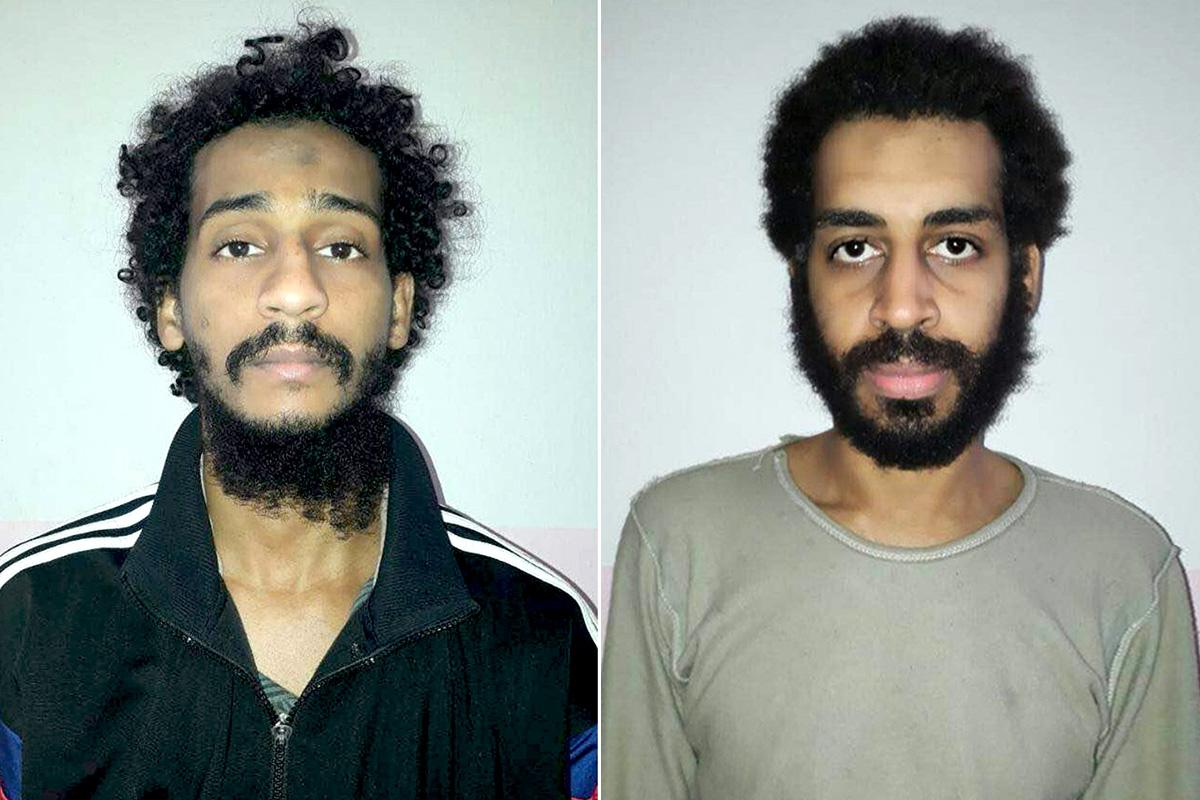Isis ‘Beatles’ were identified after boasting about arrest at EDL counter-demonstration
El Shafee Elsheikh is to be sentenced in the US on Friday after fellow terrorist Alexanda Kotey was jailed for life
Two members of the Isis “Beatles” terror cell were identified after they boasted about being arrested while opposing an English Defence League (EDL) march years before, police have revealed.
Alexanda Kotey and El Shafee Elsheikh were involved in the kidnapping of at least 27 people in Syria between 2012 and 2015, including aid workers and journalists who were later executed in Isis propaganda videos.
In 2011, the year before they travelled to join Isis, the pair were arrested as part of a group of Islamist extremists over a stabbing during clashes with the far-right EDL.
They were freed without charge but their comments on the incident years later in Syria helped British police trace their identities and gather evidence used in a US prosecution.
Kotey has been jailed for life after admitting eight charges, including conspiracy to commit hostage-taking resulting in death and conspiracy to murder US citizens, while Elsheikh was convicted after denying the crimes and will be sentenced on Friday.
The Metropolitan Police’s Counter Terrorism Command began an investigation into the then-unidentified militants in November 2012, following the abduction of British photographer John Cantlie and American journalist James Foley.
Commander Richard Smith told a press conference the militants involved kept their faces covered and withheld their names from hostages, leaving investigators scrambling for any “breadcrumbs” that might lead to their identification.
The first clue was the British accents that led the captors to be dubbed “The Beatles”, narrowing them down to the pool of foreign fighters who went to Syria from the UK.
“It was from the accounts of freed hostages and intelligence that we realised they were UK nationals, possibly from London,” Mr Smith said.
“One piece of information, which was fairly unremarkable on the face of it to the hostages, proved very significant to us, and this was the recollection of a conversation where one of the captors mentioned he had been arrested at an EDL march in London while taking part in a counter-demonstration.
“Based on that snippet of conversation, our investigation team was able to go back and identify a particular EDL march that took place in London on 11 September 2011.”
The demonstration, on the 10th anniversary of 9/11, had seen members of Muslims Against Crusades - an offshoot of Anjem Choudary’s al-Muhajiroun organisation that was banned as a terrorist group months later - burn an American flag and chant “USA terrorists” outside the US embassy.
They fought running battles with members of the EDL in the surrounding area after evading police attempts to keep the opposing groups apart.

“A stabbing occurred linked to that march and a group of individuals had been arrested on suspicion of involvement,” Mr Smith said.
“From our records, we found that two of those individuals were Kotey and Elsheikh. Both of them were both released without charge for that offence but the information was invaluable in helping us zero in on them as being the men the hostages had described to us.”
Police officers had taken footage of the two men at the demonstration, and after their arrest, their fingerprints were taken and they were interviewed.
The evidence showed that they had been “associates for some time” before travelling to Syria, and they were also linked to Mohammed Emwazi, the Isis executioner who became known as Jihadi John.
His identity was proven after footage of police interviews over a spate of London bike thefts in 2012 was forensically compared to the voice of the masked militant in footage of the execution of Mr Foley and other victims.
A voice message that Elsheikh sent to his brother while in Syria was also matched to another police interview tape from 2009.
Barack Obama’s administration launched at least one operation to rescue American hostages held by Isis but was ultimately unsuccessful.
Some European hostages were released after their governments paid ransom, but both the US and UK governments have a long-standing policy of not paying money to terrorist groups.
Kotey and Elsheikh were captured by the Syrian Democratic Forces in January 2018, following the collapse of Isis’ “caliphate”, while Emwazi was killed in a targeted US drone strike in 2015.
They were prosecuted in the US following lengthy legal wranglings between the American and British governments after the UK said it could not prosecute them.
A legal challenge brought by Elsheikh’s mother over the UK’s decision to pass over its evidence without assurances that the death penalty would not be used revealed that the Crown Prosecution Service found there was “insufficient evidence” for a successful prosecution in 2016 and again in 2018.
The case concluded with the Supreme Court ruling the decision was lawful in 2020, but Mr Smith said police later obtained authorisation for 139 charges against Kotey and Elsheikh for offences including conspiracy to murder and hostage-taking.
He insisted that at the point the British government decided to hand its evidence to the US in June 2018, there had been no prospect of prosecution in the UK, and that the situation changed as the investigation progressed after the 2020 court case.
“At that point, a decision had not been made on where they would stand trial and there was a possibility that they would come back to the UK,” the senior counter-terror officer said.
Mr Smith denied letting Kotey and Elsheikh “slip through the net” at the point they travelled to join Isis in Syria, saying that in 2012 it was not possible to identify their intentions.
“There was not sufficient indication that anyone could realistically have acted on to intervene at an earlier stage,” he said.




